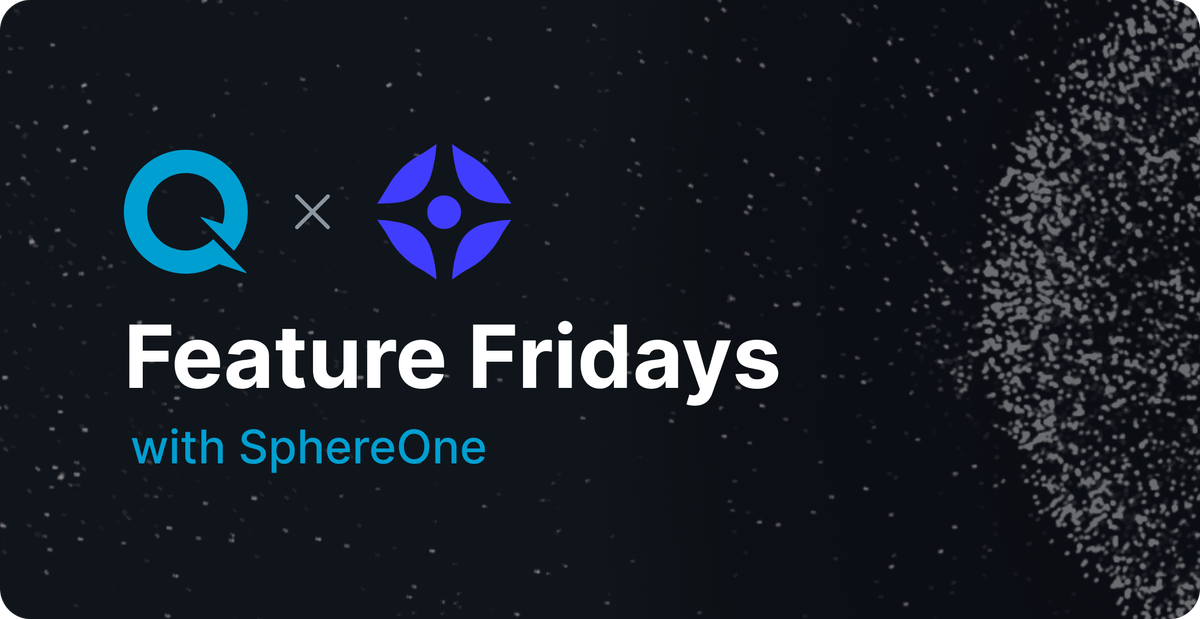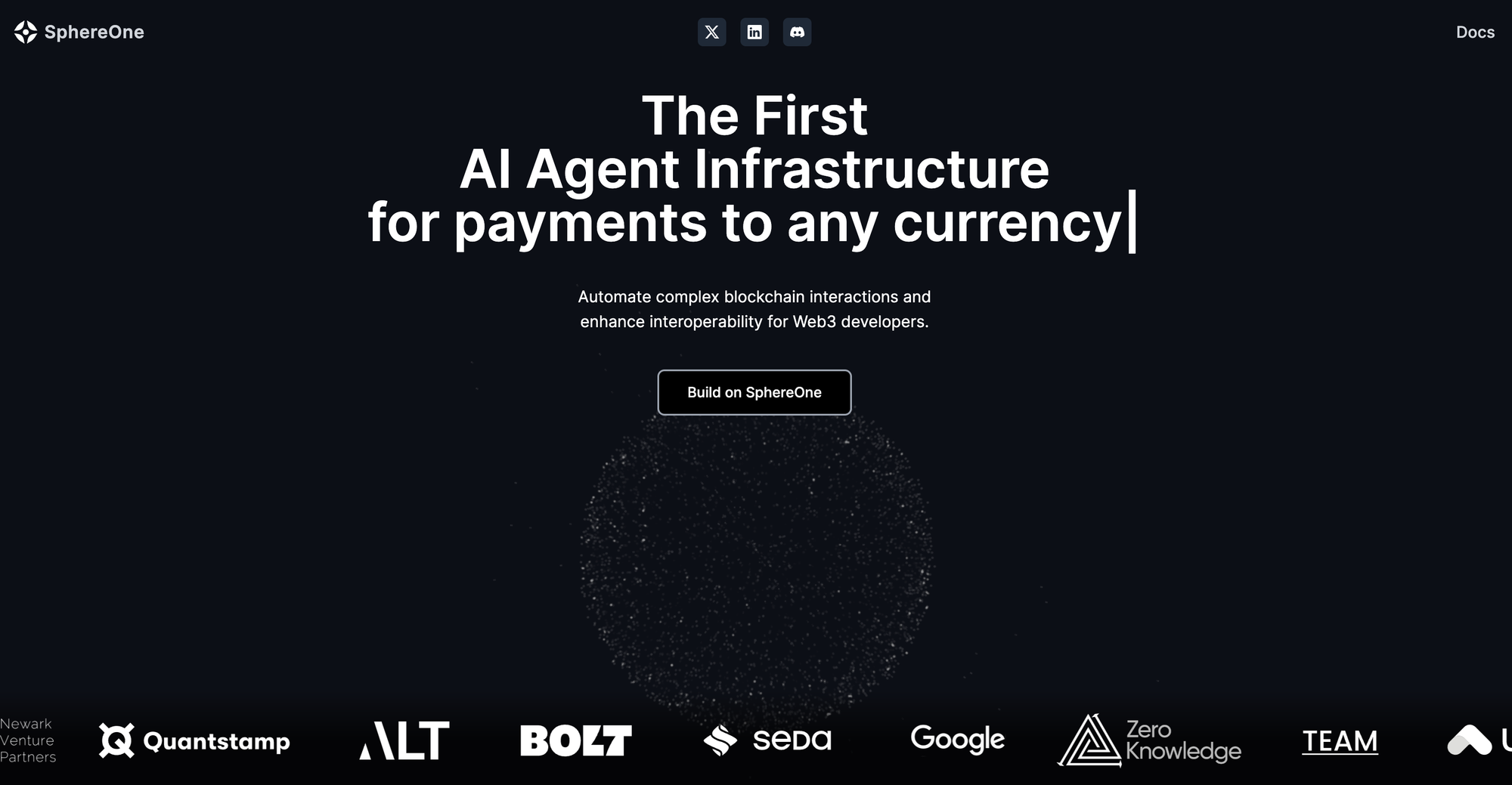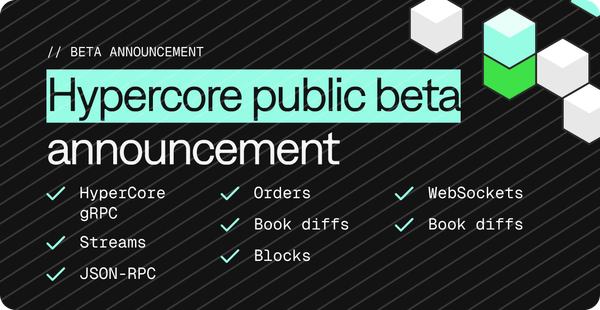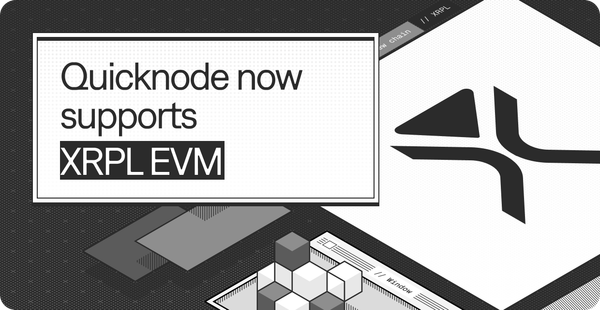Feature Fridays: SphereOne
SphereOne is transforming the web3 landscape with its AI-powered platform, streamlining blockchain integrations and enhancing user experience through seamless onramps, bridges, swaps, and transfers.

Welcome back to Feature Fridays! This week, we're excited to spotlight SphereOne, a groundbreaking platform revolutionizing the web3 ecosystem. Ryan McNutt, co-founder and CEO of SphereOne, leads this innovative venture with a wealth of experience. His journey into web3 began in 2017 when he developed a trading bot combining two AI algorithms to trade Bitcoin automatically. Since then, he’s founded multiple startups and led engineering teams, bringing a unique perspective to SphereOne.

Q & A with SphereOne 👇
Could you introduce yourself by sharing your name, prior experience, and current role within your company? Additionally, please briefly explain your company's mission and what it offers to its customers.
Hi, I am Ryan McNutt, the co-founder and CEO of SphereOne. My journey into web3 began in 2017 when I developed a trading bot that combined two AI algorithms to automatically trade Bitcoin. Since then, I’ve been founding startups and leading engineering teams. At SphereOne, our mission is to interconnect all of web3. We achieve this by building an AI intent layer that provides AI agents to wrap protocols, APIs, chains, and SDKs. This reduces inefficiencies across developer stacks and enables a seamless user experience, allowing users to perform actions like onramps, bridges, swaps, and transfers in a single transaction. Moreover, we enable developers to leverage our platform within their products, expanding their development capabilities for solvers, fillers, onramps, and other functionalities. By creating an internal API, we allow users to access our extensive network of agents to fulfill requests or automate processes, enhancing their exposure and capabilities across the web3 ecosystem.
How has your company grown and changed since its inception, and what do you have planned for its future?
SphereOne has undergone significant changes since its inception. We started as a payments platform but encountered challenges in expanding support for the growing number of blockchains. Initially, we integrated 18 chains and 130 different pieces of infrastructure, with over 40 chains in our backlog, equating to roughly four years of work. To accelerate this process, we developed an automated system that leverages AI agents to expand to new blockchains and protocols in minutes instead of months. What began as an internal tool evolved into a platform that others wanted to use, ultimately becoming the product we offer today.
What inspired you to develop SphereOne, and how did you conceive of the idea?
I view web3 as a transformative technology that can unlock access to services and products for people worldwide. It provides a safe place for the unbanked to store their funds and access financial products that can help compound their money. Additionally, it offers a way to base their savings in potentially more stable currencies, effectively changing the lives of billions of people. My inspiration for SphereOne came from a desire to help these people and make web3 a usable field for the masses.
Can you provide insight into SphereOne’s progress by sharing any metrics or milestones indicating its traction?
To date, we have partnered with numerous protocols and meme tokens, providing upfront value for our community and users on the platforms where we’ve deployed our technology. An initial marketing campaign and community activation resulted in 800 agents wrapping over three-quarters of all DeFi within three days, delivering a 5x output compared to a 10-person engineering team over two years. We have since launched several activations and have a backlog of top protocols seeking agents to solve coordination problems or improve user processes to increase conversions. Some of our partners include Ponke, Degen, Decent, Avalanche, LiFi, and many more yet to be announced.
How does your company utilize QuickNode, and what benefits does it bring to your business operations?
We integrate QuickNode RPC in every network node to facilitate the submission of transactions and retrieval of on-chain account data. QuickNode’s reliable and efficient infrastructure is crucial to our operations, ensuring seamless and rapid data processing. From retrieving balances to accessing NFT metadata, their products are highly usable and essential for our development needs.
This integration enhances the performance and reliability of our network, allowing us to maintain the high standards of service that our users expect. QuickNode’s capabilities are instrumental in enabling us to deliver a robust and scalable solution that meets the diverse needs of our clientele. By leveraging QuickNode, we power numerous agents for the chains they support, which in turn helps us streamline operations and provide superior service to our users.

About QuickNode
QuickNode is building infrastructure to support the future of Web3. Since 2017, we've worked with hundreds of developers and companies, helping scale dApps and providing high-performance access to 30+ blockchains. Subscribe to our newsletter for more content like this, and stay in the loop with what's happening in web3!





